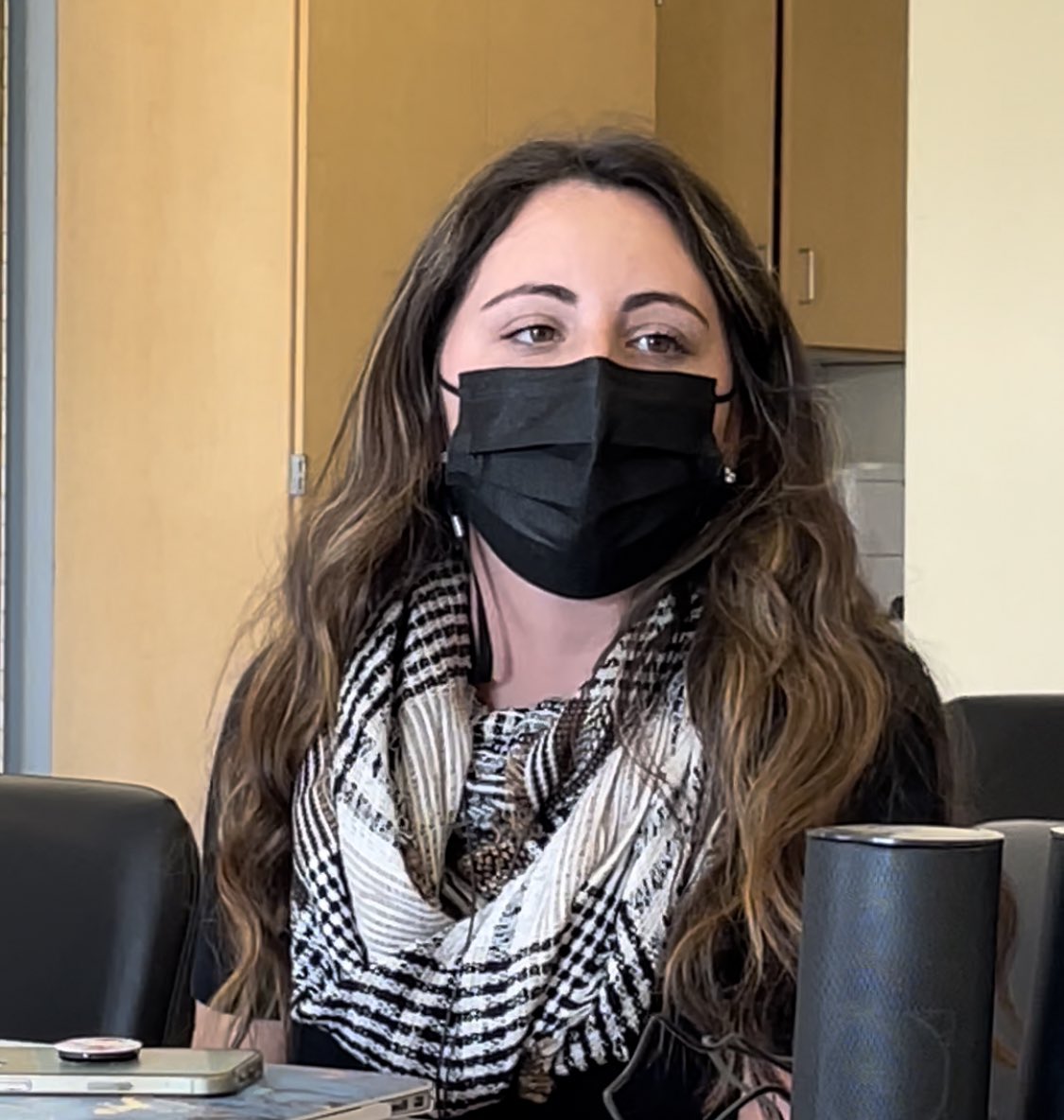
Let’s hear from teachers in UP Academy Holland about the shift from @FountasPinnell / balanced literacy to research-aligned curriculum, @ELeducation.
You don’t want to miss this… 🔥
#CurriculumMattersMA
You don’t want to miss this… 🔥
#CurriculumMattersMA

Tiana Wallace says that before, “everything was bucketed.”
“In writers workshop, you might be focused on animals. In read aloud, you might be focused on family.”
@ELeducation, which is designed for deep study in content areas, is supporting stronger vocab acquisition for Ss.
“In writers workshop, you might be focused on animals. In read aloud, you might be focused on family.”
@ELeducation, which is designed for deep study in content areas, is supporting stronger vocab acquisition for Ss.
Wallace teaches ESL, and vocabulary development is esp. critical for English Learners!
We also heard about this lack of coherence from 1st grade teacher Alexa Reynolds.
Writers workshop was not connected to the read aloud, which was not connected to the reading tip.
We also heard about this lack of coherence from 1st grade teacher Alexa Reynolds.
Writers workshop was not connected to the read aloud, which was not connected to the reading tip.
Reynolds’s observation that students are all working towards building content knowledge in @ELeducation is echoed by 3rd grade teacher Sarah Birney.
She noticed that F&P was not focused on helping students to become content experts.
The contrast between the two is very clear.
She noticed that F&P was not focused on helping students to become content experts.
The contrast between the two is very clear.

“Teachers, especially in lower grades, were modifying lessons or writing lessons themselves instead of using an evidence based curriculum,” leading to a lack of coherence and consistency across the school.
More from Shana Birney:
#CurriculumMattersMA
More from Shana Birney:
#CurriculumMattersMA
Laura Copeland-Clarke, a Special Education Teacher, explains the downsides of grouping kids by reading level.
“A student could be level L for fluency and decoding and another is there for comprehension.”
This did not facilitate differentiation by skill needs.
“A student could be level L for fluency and decoding and another is there for comprehension.”
This did not facilitate differentiation by skill needs.
Fourth grade teacher Alix Leeser felt like 90% of her teacher energy was going to small group work… and she wasn’t seeing the growth she wanted to see.
It was frustrating to put in so much effort – and not know why it wasn’t working for many kids.
It was frustrating to put in so much effort – and not know why it wasn’t working for many kids.
The practices didn’t all make sense.
“I know these students are working on their letter sounds, but for some reason I’m pulling them every day to practice reading this four word sentence over and over again.”
#CurriculumMattersMA
“I know these students are working on their letter sounds, but for some reason I’m pulling them every day to practice reading this four word sentence over and over again.”
#CurriculumMattersMA
“We would continue to sit down with these pre-alphabetic kids and get them to read the four-sentence book.”
– First grade teacher Alexa Reynolds
– First grade teacher Alexa Reynolds

Sarah Birney explains the relative precision of @ELeducation’s foundational skills approach.
“There’s a big difference between saying ‘chunk the word’… what does that even mean??… versus saying, ‘This is a double-vowel syllable. Let’s read words with double-vowel syllables.”
“There’s a big difference between saying ‘chunk the word’… what does that even mean??… versus saying, ‘This is a double-vowel syllable. Let’s read words with double-vowel syllables.”
‘This approach is “more specific for teachers and students than saying, “chunk that word into the parts you know.”’ 

UP Holland’s teachers praised @ELeducation.
Tiana Wallace was on selection committee. T’s wanted materials that would meet needs of ALL Ss.
Also they sought coherence. “We wanted to hit everything that was causing so much segmentation in our earlier instructional practices.”
Tiana Wallace was on selection committee. T’s wanted materials that would meet needs of ALL Ss.
Also they sought coherence. “We wanted to hit everything that was causing so much segmentation in our earlier instructional practices.”
They were also intentional in seeking a curriculum that builds background knowledge, “creating experts” through the materials.
💙
#KnowledgeMatters
#CurriculumMattersMA
💙
#KnowledgeMatters
#CurriculumMattersMA
Sarah Birney explains that students study pollinators in one grade and frogs in another. Both units teach about adaptations.
“There is a lot of room for connections between their past learning and the learning they are going to do.”
#CurriculumMattersMA
“There is a lot of room for connections between their past learning and the learning they are going to do.”
#CurriculumMattersMA
Tiana Williams explains the engagement of students with the knowledge-rich units, as she describes her students’ work with the @ELeducation module on Birds.
Really worth a listen:
🐦💙🐦💙🐦
#CurriculumMattersMA
Really worth a listen:
🐦💙🐦💙🐦
#CurriculumMattersMA
“With each unit, they become these experts.”
– @alixleeser
Performance tasks at the end of the unit allow students to show off their knowledge – and students are consistently proud to do so!
#CurriculumMattersMA
– @alixleeser
Performance tasks at the end of the unit allow students to show off their knowledge – and students are consistently proud to do so!
#CurriculumMattersMA
Students also spend a lot of time discussing texts, with rich questions that get them digging into the books!
Sarah Birney says that “students ability to respond orally to questions is a lot more natural” with all of this practice.
Sarah Birney says that “students ability to respond orally to questions is a lot more natural” with all of this practice.
With @FountasPinnell, “nothing was sticking” in the writing realm.
The @ELeducation curriculum incorporates daily writing tasks and regular practice with common writing exercises (ex. paraphrase, summarize).
@alixleeser explains the effect on student writing:
The @ELeducation curriculum incorporates daily writing tasks and regular practice with common writing exercises (ex. paraphrase, summarize).
@alixleeser explains the effect on student writing:
• • •
Missing some Tweet in this thread? You can try to
force a refresh







